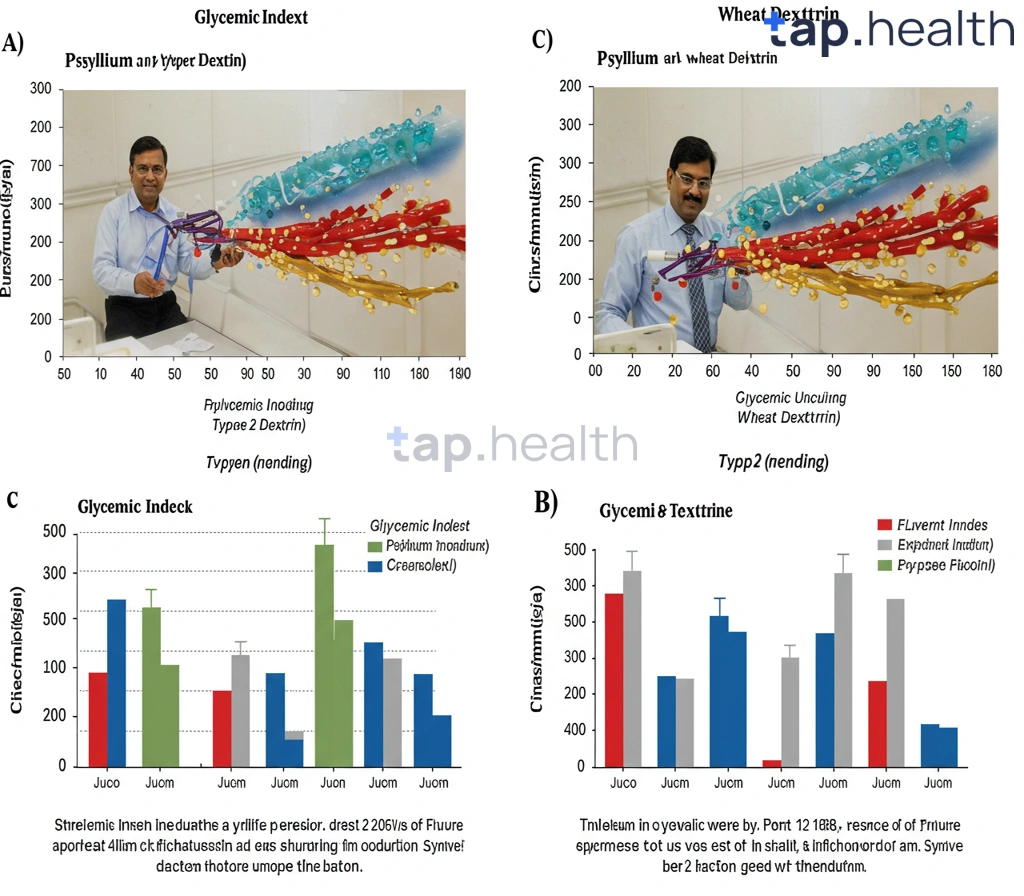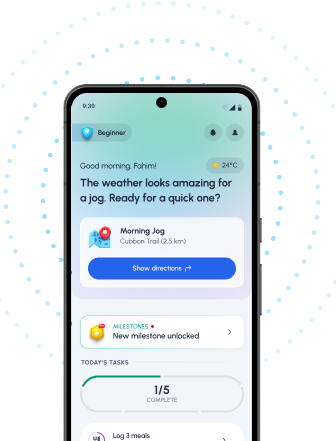Table of Contents
- Diabetes and Sleep Problems: A Comprehensive Guide
- Understanding the Insomnia-Diabetes Connection
- How Does High Blood Sugar Affect Sleep Quality?
- Tips for Better Sleep with Diabetes: Improve Your Rest
- Is Your Insomnia a Sign of Unmanaged Diabetes?
- Frequently Asked Questions
- References
Are you struggling with sleepless nights and battling diabetes? You’re not alone. Many people with diabetes experience insomnia, and the connection between these two conditions is often more significant than you might realize. This blog post will delve into the complex relationship between Diabetes and Insomnia: Understanding the Connection, exploring the underlying causes, potential consequences, and importantly, practical strategies to improve your sleep quality and manage your diabetes more effectively. Let’s uncover the science behind this frustrating link and find solutions together.
Diabetes and Sleep Problems: A Comprehensive Guide
Diabetes significantly impacts sleep quality, increasing the risk of sleep disorders. Research shows a staggering 70% heightened risk of sleep apnea and related problems in individuals with diabetes. This connection isn’t merely coincidental; it’s a complex interplay of physiological factors. High blood sugar levels, a hallmark of diabetes, can disrupt the body’s natural sleep-wake cycle. Furthermore, conditions frequently associated with diabetes, such as obesity and nerve damage (neuropathy), often contribute to sleep disturbances. In hot and humid tropical climates prevalent in many Indian and other tropical countries, these issues can be exacerbated due to discomfort and increased sweating.
Understanding the Types of Sleep Problems
Diabetic individuals often experience various sleep issues. Sleep apnea, characterized by pauses in breathing during sleep, is particularly common. For a deeper understanding of this connection, read more in our article, The Connection Between Diabetes and Sleep Apnea. Insomnia, the difficulty falling asleep or staying asleep, is another prevalent problem. Restless legs syndrome (RLS), characterized by an irresistible urge to move the legs, and excessive daytime sleepiness are also frequently reported. These conditions can lead to fatigue, impacting daily life and potentially worsening diabetes management. Proper sleep hygiene is crucial for effective blood sugar control.
Improving Sleep in Tropical Climates
Managing diabetes-related sleep problems requires a multi-pronged approach. Prioritizing a healthy lifestyle with regular exercise, a balanced diet, and stress management techniques is crucial. In hot and humid climates, consider using cooling measures like air conditioning or fans to improve sleep quality. Staying hydrated throughout the day is also essential, especially during warmer months. Consulting a healthcare professional is highly recommended to receive personalized advice and treatment for both diabetes and associated sleep disorders. Seeking help early can prevent serious health complications and improve overall well-being. Regular check-ups are especially important for those residing in regions with hot and humid climates. Remember that prioritizing quality sleep is vital for managing your diabetes effectively, as discussed in The Importance of Quality Sleep in Managing Diabetes.
Understanding the Insomnia-Diabetes Connection
Sleep disturbances are incredibly common, especially among those with diabetes. A significant portion of the global diabetes population, 61% of whom are aged between 20-64 years according to the International Diabetes Federation, often experiences difficulty falling asleep or staying asleep. This isn’t just a matter of inconvenience; insomnia and diabetes share a complex, bidirectional relationship. High blood sugar levels can disrupt the body’s natural sleep-wake cycle, leading to insomnia. Conversely, chronic sleep deprivation can negatively impact blood sugar control, exacerbating diabetes management.
The Vicious Cycle of Diabetes and Insomnia
The link between diabetes and insomnia is often a vicious cycle. For example, elevated blood glucose levels during the night can trigger nighttime awakenings, reducing sleep quality and promoting fatigue. This fatigue can then lead to poor lifestyle choices, such as skipping exercise or indulging in unhealthy food, which further elevates blood sugar levels. In India and other tropical countries, factors like heat and humidity can further complicate sleep, adding another layer of challenge for individuals managing diabetes. The older population, representing 39% of those with diabetes according to the IDF, is particularly vulnerable to these combined effects. Understanding the connection between sleep and blood sugar control is vital, and sometimes, the post-meal sleepiness experienced by some diabetics, as explained in Why Do Diabetics Get Sleepy After Eating?, can be a contributing factor to sleep disturbances.
Improving Sleep for Better Diabetes Management
Prioritizing sleep hygiene is crucial for individuals with diabetes in India and throughout tropical regions. This involves establishing a consistent sleep schedule, creating a relaxing bedtime routine, and ensuring a comfortable sleep environment. Regular exercise, although challenging in hot climates, can significantly improve sleep quality. Dietary changes, such as avoiding large meals close to bedtime and limiting caffeine and alcohol intake, can also make a considerable difference. It’s also important to address any underlying issues contributing to diabetes, such as obesity. Learn more about this crucial link in our article, Understanding the Link Between Diabetes and Obesity. Consult your doctor or a certified diabetes educator for personalized advice tailored to your specific needs and the challenges of your regional climate. Taking proactive steps to manage both your diabetes and your sleep is essential for improving overall health and well-being.
How Does High Blood Sugar Affect Sleep Quality?
High blood sugar levels, a hallmark of diabetes, significantly impact sleep quality in individuals across India and other tropical countries. When blood glucose levels remain elevated, particularly above 200 mg/dL, indicating diabetes, or even in the prediabetes range of 140–199 mg/dL, the body struggles to regulate itself effectively. This disruption can manifest in several ways, affecting both the quantity and quality of sleep.
Frequent Nocturnal Urination:
High blood sugar causes the kidneys to work overtime to filter excess glucose from the bloodstream, leading to increased urination, especially at night. This frequent need to get up disrupts sleep cycles, resulting in fragmented and less restful sleep. This is particularly challenging in hot and humid climates common in India and other tropical regions, where frequent trips to the bathroom can be even more disruptive.
Increased Stress and Anxiety:
Managing diabetes requires constant vigilance and can lead to significant stress and anxiety. These emotional states, often worsened by the heat and humidity prevalent in tropical climates, can interfere with the ability to fall asleep and stay asleep. The resulting sleep deprivation further exacerbates stress levels, creating a vicious cycle. Understanding Does Sugar Diabetes Make You Sleepy? can help you better manage this.
Autonomic Nervous System Dysfunction:
High blood sugar levels can affect the autonomic nervous system, responsible for regulating many bodily functions, including sleep. This dysfunction can lead to symptoms like increased heart rate, sweating, and difficulty breathing, all of which make it difficult to achieve restful sleep. In tropical climates, these symptoms might be amplified by already existing heat and humidity.
Actionable Tip: Maintaining blood sugar levels within the healthy range, ideally less than 140 mg/dL, through a balanced diet, regular exercise, and medication as prescribed by your doctor, is crucial for improving sleep quality. Learning how to maintain healthy blood sugar levels is a vital first step. Consult with your doctor or a diabetes specialist for personalized advice tailored to your specific needs and the climate you live in. Regular checkups and proactive management of your diabetes are key to ensuring better sleep and overall health.
Tips for Better Sleep with Diabetes: Improve Your Rest
Understanding the Link Between Diabetes and Sleep
Many individuals with diabetes in India and other tropical countries experience difficulties with sleep. This isn’t just a matter of discomfort; poor sleep can significantly impact blood sugar control. Fluctuations in blood glucose levels, especially hypoglycemia (low blood sugar) or hyperglycemia (high blood sugar), can disrupt sleep patterns, leading to insomnia. The constant need to monitor blood sugar levels and adjust medication can also contribute to sleep disturbances.
Practical Strategies for Improved Sleep
Managing diabetes effectively is crucial for better sleep. Maintaining a consistent blood sugar level throughout the day and night is key. This often involves carefully planning your carbohydrate intake. For example, aiming for a balanced meal plan with approximately 45–60 grams of carbs per meal, depending on individual needs and prescribed dietary guidelines, can help stabilize blood glucose levels and reduce night-time fluctuations. Regular exercise, even a short walk after dinner, can also improve sleep quality. For more comprehensive tips on diabetes management, check out our guide: 10 Proven Tips to Effectively Manage Diabetes | Simple Guide.
Lifestyle Adjustments for Better Sleep Hygiene
Beyond diet and exercise, establishing good sleep hygiene is vital. This includes creating a relaxing bedtime routine, ensuring your bedroom is dark, quiet, and cool, and avoiding caffeine and alcohol before bed. In the warmer climates of India and tropical regions, consider using cooling techniques like a damp cloth on your forehead or a fan to ensure a comfortable sleep environment. Remember to consult your doctor or diabetologist for personalized advice tailored to your specific needs and health condition.
Seeking Professional Help
If sleep problems persist despite these efforts, seeking professional help is essential. Diabetologists in your region can provide guidance and may recommend further evaluation or treatment to address both your diabetes management and sleep issues. Taking proactive steps towards better sleep will positively impact your overall health and well-being. Learning 10 Proven Tips for Effective Diabetes Management can significantly improve your overall health and help contribute to better sleep.
Is Your Insomnia a Sign of Unmanaged Diabetes?
Experiencing persistent sleep problems? You’re not alone. Many individuals in India and across tropical countries grapple with insomnia, often without realizing a potential underlying cause: undiagnosed or poorly managed diabetes. A staggering 50% of diabetes cases worldwide remain undetected, according to the International Diabetes Federation, highlighting the crucial need for increased awareness. This statistic is particularly relevant in regions like India, where diabetes prevalence is high.
Understanding the Link Between Diabetes and Insomnia
High blood sugar levels, a hallmark of diabetes, can disrupt the body’s natural sleep-wake cycle. Fluctuations in blood glucose throughout the night can lead to frequent awakenings, difficulty falling asleep, and overall poor sleep quality. Furthermore, other diabetes-related complications, such as nerve damage (neuropathy) common in poorly controlled diabetes, can contribute to restless legs syndrome and other sleep disturbances. These sleep issues can significantly impact your daily life, leading to fatigue, reduced productivity, and increased susceptibility to other health problems.
Recognizing the Symptoms and Seeking Help
Persistent insomnia, coupled with increased thirst, frequent urination, unexplained weight loss, or blurred vision, could indicate an underlying diabetes issue. If you are experiencing these symptoms, especially if you live in a high-risk region, it is crucial to get your blood sugar levels checked. Early detection and management are key to preventing long-term complications. For example, if you’re experiencing is feeling sleepy after eating a sign of diabetes, it warrants further investigation.
Taking Action: Prioritizing Your Health
Don’t let insomnia go unchecked. In India and other tropical countries, access to affordable healthcare varies. However, seeking advice from your local doctor or attending a diabetes screening camp is a crucial first step. Early diagnosis and effective management of diabetes can significantly improve sleep quality and overall well-being. Remember, prioritizing your health today ensures a brighter, healthier tomorrow. Avoiding 5 Common Mistakes People Make in Managing Diabetes is also crucial for better sleep and overall health.
Frequently Asked Questions
Q1. How does diabetes affect my sleep?
Diabetes can disrupt your sleep in several ways. High blood sugar levels interfere with your natural sleep-wake cycle. Additionally, conditions often associated with diabetes, such as obesity and nerve damage (neuropathy), can worsen sleep problems like insomnia and restless legs syndrome. In warm climates, heat and humidity can add to these challenges.
Q2. What sleep problems are common for people with diabetes?
Diabetics frequently experience insomnia (difficulty falling asleep or staying asleep), sleep apnea (breathing pauses during sleep), restless legs syndrome, and excessive daytime sleepiness. These issues often lead to fatigue.
Q3. What can I do to improve my sleep if I have diabetes?
Improving your sleep involves a multi-pronged approach. This includes lifestyle changes like improving your diet and increasing physical activity, managing stress, and making environmental adjustments such as cooling your bedroom (especially in hot climates). Consulting a healthcare professional is also crucial for personalized advice and to address any underlying medical issues.
Q4. Why is it important to address sleep problems if I have diabetes?
Sleep and diabetes have a bidirectional relationship. Poor sleep can worsen blood sugar control, while poor blood sugar control worsens sleep. Addressing sleep problems is vital for managing diabetes effectively and improving your overall health and well-being. Ignoring sleep problems, especially alongside other diabetes symptoms, may indicate undiagnosed or poorly managed diabetes, requiring medical attention.
Q5. When should I seek professional help for sleep problems related to diabetes?
If you’re experiencing significant sleep disturbances, such as frequent insomnia, excessive daytime sleepiness, or other sleep disorders, you should consult your doctor. This is especially important if these sleep problems are accompanied by other diabetes symptoms. Early intervention can prevent serious complications and improve your overall health.
References
- A Practical Guide to Integrated Type 2 Diabetes Care: https://www.hse.ie/eng/services/list/2/primarycare/east-coast-diabetes-service/management-of-type-2-diabetes/diabetes-and-pregnancy/icgp-guide-to-integrated-type-2.pdf
- What is Diabetes: https://www.medschool.lsuhsc.edu/genetics/docs/DIABETES.pdf




